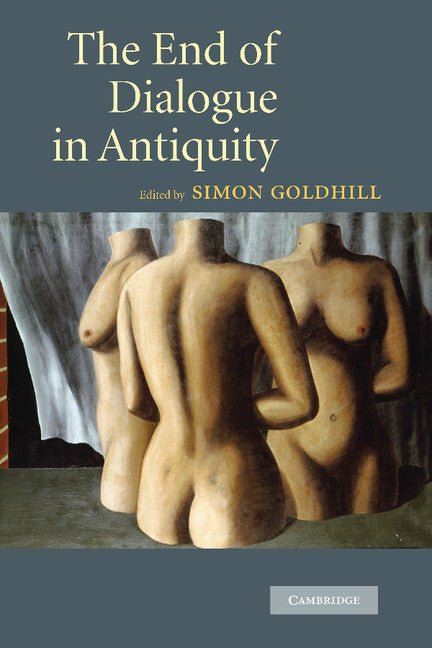Freshly Printed - allow 8 days lead
Couldn't load pickup availability
The End of Dialogue in Antiquity
This book is a general and systematic study of the genre of dialogue in antiquity, investigating why dialogue matters.
Simon Goldhill (Edited by)
9780521887748, Cambridge University Press
Hardback, published 8 January 2009
276 pages
23.1 x 15.5 x 2 cm, 0.54 kg
"The book's scope--from Thucydides and Plato, to Cicero and late sympotic literature, to the rabbinic tales and the Church Fathers--is wondrous. --BMCR
'Dialogue' was invented as a written form in democratic Athens and made a celebrated and popular literary and philosophical style by Plato. Yet it almost completely disappeared in the Christian empire of late antiquity. This book, a general and systematic study of the genre in antiquity, asks: who wrote dialogues and why? Why did dialogue no longer attract writers in the later period in the same way? Investigating dialogue goes to the heart of the central issues of power, authority, openness and playfulness in changing cultural contexts. This book analyses the relationship between literary form and cultural authority in a new and exciting way, and encourages closer reflection about the purpose of dialogue in its wider social, cultural and religious contexts in today's world.
Introduction: why don't Christians do dialogue? Simon Goldhill
Part I. Classical Models: 1. Fictions of dialogue in Thucydides Emily Greenwood
2. The beginnings of dialogue: Socratic discourses and fourth-century prose Andrew Ford
3. Plato's dialogues and a common rationale for dialogue form Alex Long
Part II. Empire Models: 4. Ciceronian dialogue Malcolm Schofield
5. Sympotic dialogue in the first to fifth centuries CE Jason König
Part III. Christianity and the Theological Imperative: 6. Can we talk? Augustine and the possibility of dialogue Gillian Clark
7. Let's (not) talk about it: Augustine and the control of epistolary dialogue Richard Miles
Part IV. Christianity and the Social: 8. Christians, dialogue and patterns of sociability in late antiquity Richard Lim
9. Boethius, Gregory the Great and the Christian 'afterlife' of Classical dialogue Kate Cooper and Matthew Dal Santo
Part V. Judaism and the Limits of Dialogue: 10. No dialogue at the symposium? Conviviality in Ben Sira and the Palestinian Talmud Seth Schwartz
11. Dialectic and divination in the Talmud Daniel Boyarin.
Subject Areas: Church history [HRCC2], Classical history / classical civilisation [HBLA1], Ancient history: to c 500 CE [HBLA]


